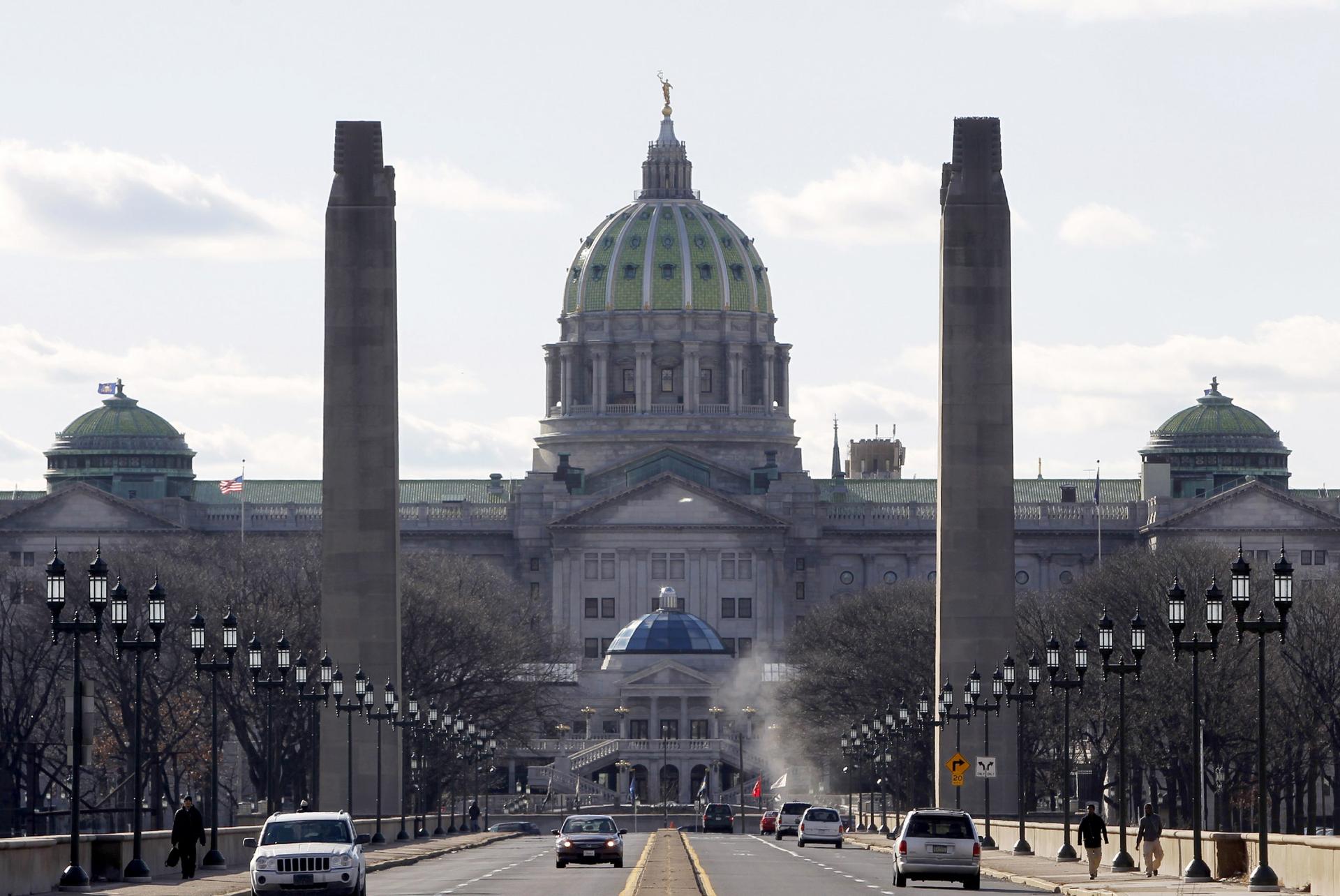WASHINGTON, D.C. — On the anniversary of the Pennsylvania grand jury report detailing alleged abuse by clergy and other church workers over several decades in six dioceses, bishops in those dioceses reflected on what the past year has wrought and described how their dioceses have acted to help past victims and prevent future victims.
The grand jury report, released Aug. 14, 2018, was based on a monthslong investigation into alleged abuse in the dioceses of Pittsburgh, Allentown, Scranton, Erie, Harrisburg and Greensburg, Pennsylvania. It covered a 70-year period starting in 1947.
“It was devastating for me, as the pastor of this diocese, to see the ugly details of what had happened within the church,” said a statement by Bishop Lawrence T. Persico of Erie on his diocese’s website. “I knew that survivor/victims, as well as all Catholics and the entire community, would need time to grapple with the report. Their deep pain, anger and grief was understandable.”
He added, “My apology is only one step in the long and complex process of healing. I know words mean very little without action. The Diocese of Erie has taken many important steps in the last year, and will continue on this path.”
Persico said, “It is clear that bringing about healing and rebuilding trust is the work we are being called to do as church. It will take time, patience and fidelity, but the Lord will provide the grace we need. With every confidence in that grace, I look forward to the work that needs to be accomplished.”
“In many instances, the wounds of 50, 60 or even 70 years ago have still not healed. The ripple effect continues to cause pain for survivors, their families and Catholics across the world,” said a statement by Bishop Edward C. Malesic of Greensburg on his diocesan website.
“I cannot change the past. I cannot rewrite this awful chapter of our church’s history. But I can try to help survivors, their families and our parishioners get through this time of suffering. I have spent nearly every day of my time as bishop solidifying our commitment to higher standards of accountability in the Diocese of Greensburg,” he said.
“What I heard from our independent lay council and from countless individuals at the listening sessions, in dozens of letters and phone calls, emails and Facebook messages was this: Be accountable. Be transparent. Tell the truth,” Malesic said.
“This year has been a time of grieving, of repentance for the harm done to people at the hands of priests who were expected to be trusted spiritual leaders. It has also been a time for the heart of the church to deepen its understanding of what victims/survivors have endured, and to reach out in news ways to help them heal spiritually,” said an Aug. 14 statement from Bishop David A. Zubik of Pittsburgh.
“Pittsburgh is a resilient region, with a unique spirit and sense of community. People draw together to see each other through hard times and come out stronger,” he added.
“Today, we look to the church of the future, the faith community we want today’s children and their children experience,” the bishop continued.
“My faith is in God. But I also have faith in the church of Pittsburgh: faith that our community can move forward in unity and with hope, learning from the past, protecting the weakest among us, holding each other accountable and continuing to fulfill the mission that Jesus gave to us.”
“While this past year was painful, it had moments of great strength and hope for the future,” said a statement from Bishop Alfred A. Schlert of Allentown on the diocese’s website. “I am very grateful to victim-survivors and to our dedicated laity, clergy, and religious order sisters and brothers, who have through their honest dialogue and constructive suggestions assisted me in my responsibilities to heal and fortify our Roman Catholic family of faith.”
The diocese’s first priority, he added, “is to keep children safe.”
“In my own name, and in the name of the diocesan church of Harrisburg, I express our profound sorrow and apologize to the survivors of child sex abuse, the Catholic faithful and the general public for the abuses that took place and for those church officials who failed to protect children,” said an Aug. 14 statement from Bishop Ronald W. Gainer of Harrisburg.
“We have and continue to take steps forward to support survivors and ensure these abuses never occur again,” Gainer said.
“Nearly one year after the release of the Pennsylvania grand jury report, we understand that shock, anger and disappointment are still seared in the minds of many people in northeastern and north central Pennsylvania,” said an unattributed statement on the Diocese of Scranton’s website.
“We continue to apologize to all survivors of sexual abuse for the sorrow and pain that they and their families have suffered. There is simply no place in civilized society for the abuse of children — and certainly not within the church,” the statement said.
“Since the release of the grand jury report in August 2018, the Diocese of Scranton has continued to build upon past efforts and has taken new steps to help restore trust in the church,” it added. “We know that regaining that trust will take time and it will happen only when the faithful encounter behavior on the part of our clergy — bishops, priests and deacons alike — that warrants such trust.”
Crux is dedicated to smart, wired and independent reporting on the Vatican and worldwide Catholic Church. That kind of reporting doesn’t come cheap, and we need your support. You can help Crux by giving a small amount monthly, or with a onetime gift. Please remember, Crux is a for-profit organization, so contributions are not tax-deductible.















